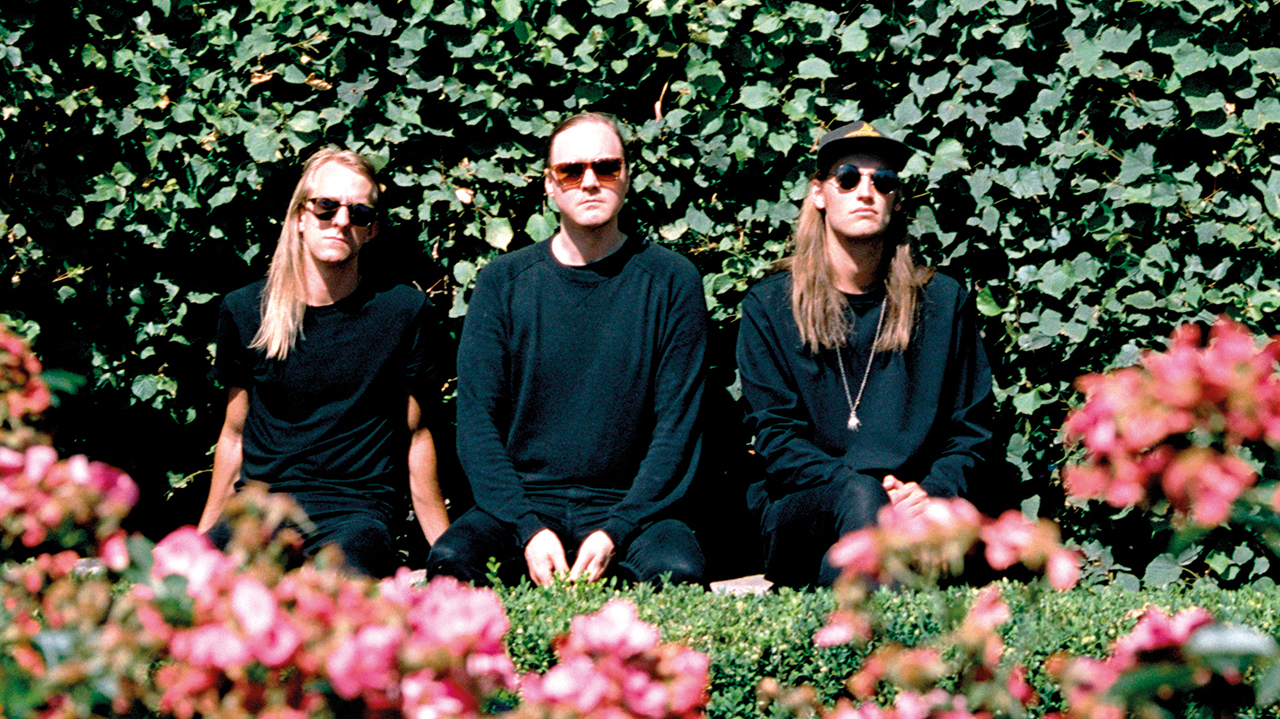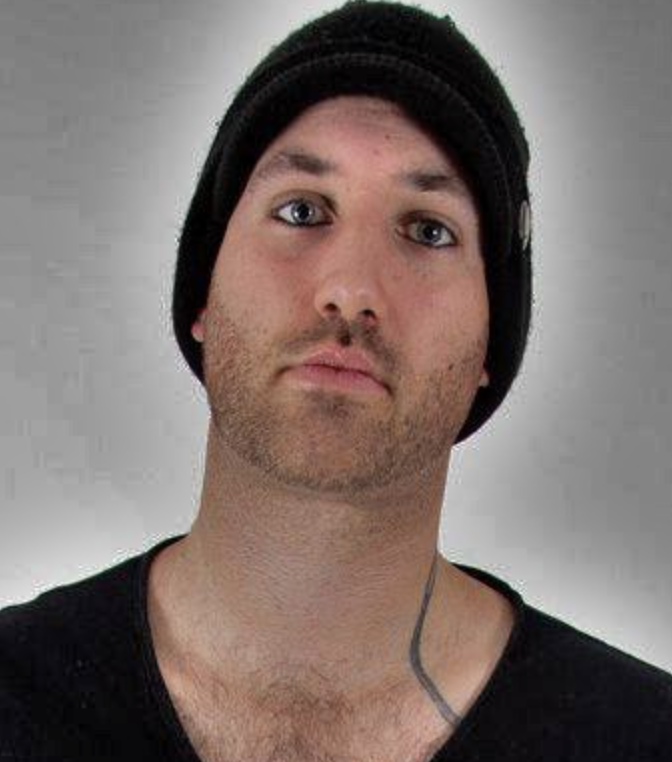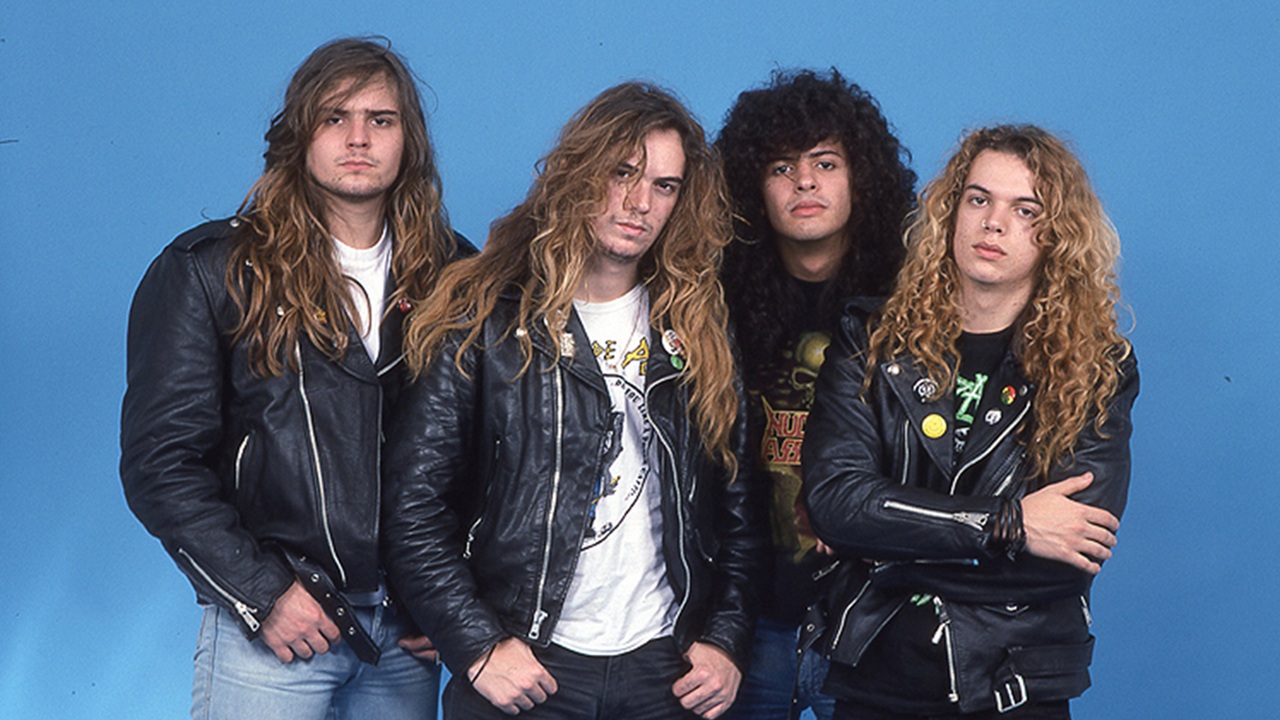Okkultokrati: 'We're still punk rock, but at some point you have to evolve'
Forged in the restless wastes of Oslo’s punk scene, Okkultokrati are taking the battle against stagnation to unexpected and exhilarating new territories

Select the newsletters you’d like to receive. Then, add your email to sign up.
You are now subscribed
Your newsletter sign-up was successful
Want to add more newsletters?

Every Friday
Louder
Louder’s weekly newsletter is jam-packed with the team’s personal highlights from the last seven days, including features, breaking news, reviews and tons of juicy exclusives from the world of alternative music.

Every Friday
Classic Rock
The Classic Rock newsletter is an essential read for the discerning rock fan. Every week we bring you the news, reviews and the very best features and interviews from our extensive archive. Written by rock fans for rock fans.

Every Friday
Metal Hammer
For the last four decades Metal Hammer has been the world’s greatest metal magazine. Created by metalheads for metalheads, ‘Hammer takes you behind the scenes, closer to the action, and nearer to the bands that you love the most.

Every Friday
Prog
The Prog newsletter brings you the very best of Prog Magazine and our website, every Friday. We'll deliver you the very latest news from the Prog universe, informative features and archive material from Prog’s impressive vault.
“There’s definitely something about the feel of those early punk rock records that we want to capture. There’s a certain simplicity and a primitive nature; it’s not even about the attitude, it’s the sound of the Ramones, or whoever you care to name from that period. We always want that. But the whole idea of punk music is to take it, and then send it in another direction.”
Sitting in a noisy North London boozer, mere hours before his band play a sold-out show with Trap Them, Okkultokrati drummer Lars draws nods from his bandmates as he contemplates the stylistic positioning of the music he and his friends create.
“We figured out what we had to work with,” adds guitarist Erik Svarte, “and then pushed it a little bit further than that.”
There’s a long, drawn-out pause as he chews on his thoughts.
It hasn’t always been this difficult to pigeonhole Okkultokrati. Born from the same Oslo scene that gave the world Haust and, latterly, where Årabrot made their most impressive advances, the band’s earliest recordings reeked of the stench of raw Black Flag, Motörhead and Venom worship. Derivative, yes, yet immensely enjoyable. But latest album Raspberry Dawn has blurred the lines; industrialised drums, wide swathes of atmospheric synth and a more brooding, menacing level of sonic restraint have been added to their rough’n’tumble, blackened hardcore. It seems that the unevolved sludge that Okkultokrati were has dragged itself up from the dirt and onto its hind legs.
“We have no respect for anything,” says Erik, “we just want to do our own thing. That’s kind of still punk rock. But at some point you have to evolve. We’re going to get to the point where we are so far removed from any of our peers that these kind of genre questions will be redundant. This is just the first one. If no one likes this record it doesn’t matter. We’re just going to keep on doing it, we’re just going to make another one. We honestly don’t give a fuck about what anyone thinks.”
“It’s nice to feel like you’re doing something different,” smiles synth man Feffe Severin. “This record has a beat that’s like a computer. It goes on throughout, constantly, until you don’t notice it anymore. That’s exciting to do, because no one would do that in rock and metal: basically use a techno beat. I apologise if that isn’t the easiest word to hear, but that’s what it is. That is this music’s driving force.”
Sign up below to get the latest from Metal Hammer, plus exclusive special offers, direct to your inbox!
Feffe is right, both about the sound and the caution with which he explains the sound of Raspberry Dawn. Just the words “techno beat” will be enough to raise the eyebrow of many a purist. And, if you are that way inclined, it’s probably best to step away from Okkultokrati now.
“It’s going to become even more mechanical,” Lars tells us with a steely glare. “more rigid, less human.”
It seems Okkultokrati have made a conscious effort to stray as far as they can from the scene that spawned them, not only musically, but ethically as well.
“We fell into that scene by accident,” Lars shrugs. “We were young and we happened to meet a bunch of bands that we could kind of identify with. But we didn’t really know them. We did a few shows with those bands, but I feel like we are doing our own thing now.”
“And you have to understand,” adds Erik “by the time we hooked up with Årabrot they had already moved on from the Oslo scene and were trying to distance themselves from that. We’ve always been outside of that scene, really. We have never been part of that. The scene was good, though… seeing Årabrot touring Europe was the most inspiring thing to us. Not sitting around Oslo talking and drinking beer. We are more separate now.”
Feffe is even more definitive.
“There is no scene in Oslo,” he says, “it’s every man for himself. And I think that’s what makes some of the magic music from Norway; you are alone and you want to get away.”
This is obviously a band who revel in being the odd men out, which may explain their attitude to their homeland. For a country that, to outsiders at least, seems to be built on an affluent, welcoming society with breathtaking landscapes, the kind of monochrome, industrial, post-punk that Okkultokrati deal in is stylistically at odds with their surroundings.
“There’s immense pressure on us,” says Lars. “We just want to break out of the expectations that have been brought about from the economic boom of the 1970s.”
“It’s hard for our generation,” Erik retorts. “Our parents won the fucking jackpot. They struck oil for themselves and their kids, and, I’ve thought a lot about this, us playing in a band and making music; that’s not what you are supposed to do. You can be whatever you want, but you’re expected to walk straight into that office job! You’re not meant to think beyond that. It’s bullshit.”
- Okkultokrati - Raspberry Dawn album review
- Trap Them live review – London, Boston Music Rooms
- Heavy Metal World Cup: Norway vs Japan
- Darkthrone's Fenriz: 2016's most surprising metal celebrity?
So, to these young men, even in comfort they have found unwelcome confines.
“You look around,” smiles Feffe, “and yes, it’s beautiful. But when you’re young, dreaming about seeing the world, it’s just a reminder that you’re surrounded by a culture of nothingness. You see grown-up people around you having a boring and bleak life. You might have a beautiful mountain right behind you, but you work in a gas station all day. How is that mountain helping you get through that day? And that’s no different to the things that these industrial bands we are inspired by sing about.”
The musical inspirations behind Raspberry Dawn is something the band talk about a lot, and you can hear everything from Crass to The Cure to Suicide on it, but previously they have shut down any suggestion that Norway’s most famous musical movement has played a part in their evolution. You have to wonder if they still feel that way about black metal.
“Well…” Erik starts with a sigh before the whole table collectively bursts out laughing. “We were young and it was such a massive thing. It was all that you ever get asked about as a young band. So we made a point of dismissing black metal, just to be contrary. But, of course, we all grew up listening to that music. We love many of those bands, how could we not be influenced by them?”
And it seems that, in a rare twist, Okkultokrati are now the ones having the influence on their heroes.
“Fenriz texted me when the album came out,” says Erik. “He said he enjoyed it. I think a lot of those bands are fans of us, because they’re forced to stick so rigidly to a formula, they can’t do what we’ve been able to do. So I think they like that. They like that we are flaunting the rules so openly.”
If their words are to be believed, this might just be the start of Okkultokrati’s journey.
RASPBERRY DAWN IS OUT NOW VIA SOUTHERN LORD

Stephen joined the Louder team as a co-host of the Metal Hammer Podcast in late 2011, eventually becoming a regular contributor to the magazine. He has since written hundreds of articles for Metal Hammer, Classic Rock and Louder, specialising in punk, hardcore and 90s metal. He also presents the Trve. Cvlt. Pop! podcast with Gaz Jones and makes regular appearances on the Bangers And Most podcast.
